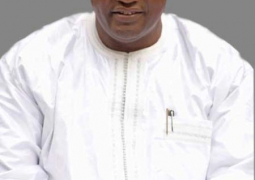It all started on April 15, 1958 in the city of Accra, Ghana, when African leaders and political activists gathered at the first Conference of Independent African States. This conference was significant in that it represented the first Pan-African Conference held on African soil. It was also significant in that it represented the collective expression of African people's disgust with the system of colonialism and imperialism, which brought so much suffering to Africans. Also, it represented the collective will to get rid of the yoke of colonialism.
After 500 years of the most brutal suffering known to humanity, the rape of Africa and the subsequent slave trade, which cost Africa in excess of millions of her children, the masses of African peoples singularly, separately, individually, in small disconnected groupings for centuries had finally said, "Enough"! But in 1958, at the Accra Conference, it was being said in ways that emphasised joint, coordinated and unified action.
This conference gave sharp clarity and definition to Pan-Africanism, the total liberation and unification of Africa. The conference as well laid the foundation and the strategy for the further intensification and coordination of the next stage of the African Revolution, for the complete liberation of the rest of Africa, and eventual and complete unification.
The conference called for the founding of Africa Freedom Day, a day to "mark each year the onward progress of the liberation movement, and to symbolise the determination of the people of Africa to free themselves from foreign domination and exploitation."
Five years later, after the First Conference of Independent African States in the city of Addis Ababa, Ethiopia, another historical meeting occurred. On May 25, 1963, leaders of thirty-two independent African states met to form the Organisation of African Unity (OAU). By then more than two thirds of the continent had achieved independence from colonial rule. At this historic meeting, the date of Africa Freedom Day was changed from April 15th to May 25th and Africa Freedom Day was declared Africa Liberation Day (ALD). Since then Africa Liberation Day has been observed on May 25th in every corner of the world.
Africa Liberation Day as an institution within the Pan-African movement reflects the growth and development of Pan-Africanism. When Pan-Africanism was faced with fighting colonialism, the focus of Africa Liberation Day was on the anti-colonial struggle and the fight for national independence. As Pan-Africanism grew stronger and developed into a more matured objective, Africa Liberation Day activities reflected this maturity.
Africa Liberation Day has contributed to the struggle to raise the level of political awareness and organisation in African communities worldwide. It has further been used as a tool to provide a platform for many African and other oppressed peoples to inform the African masses about their respective struggles for true liberation and development.
For Southern Africa, Africa Liberation Day played a critical role in the defeat of colonialism and apartheid. It inspired others to support through various progressive organisations, liberation committees and movements, both in Africa and the socialist countries around the world, the building of anti-colonial and national liberation movements by generating arms for the freedom fighters, offering a platform where the world could receive political education on the nature of the struggle, and providing a mass assembly where the spirit and morale of the freedom fighters could be reinvigorated.
Several states in Africa today stand independent, because of military and other assistance from those who championed the total liberation of Africa.
Africa Liberation Day stands committed to the struggle for national independence, African redemption, African liberation, and African unification. Africa Liberation Day activities are organised on May 25th throughout Africa and all over the world, where African people are living and struggling.
As we mark this day tomorrow, we urge all Africans and non-Africans alike to reaffirm their commitment to the total liberation of the continent.
"We have to talk about liberating minds as well as liberating society."
Angela Davis


